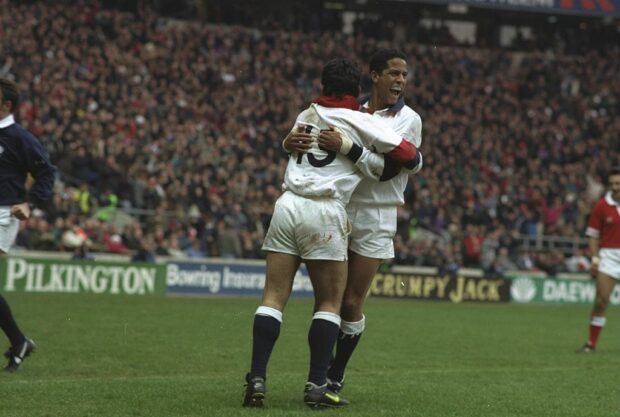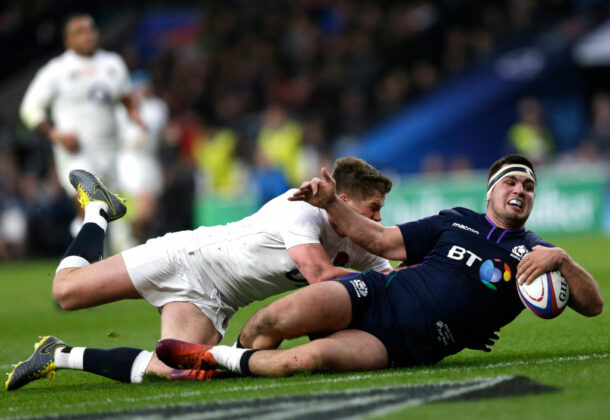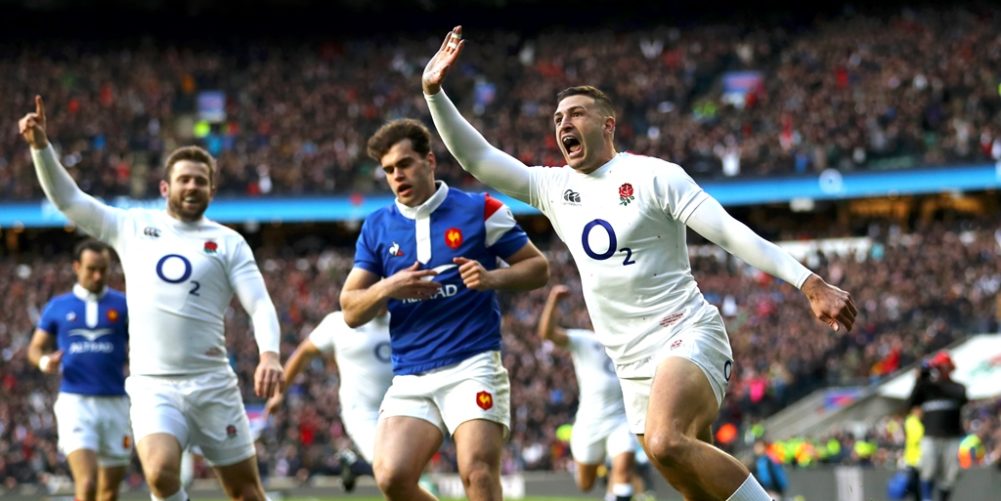MY wish list for the New Year starts with the teams competing for the 2020 Six Nations title to either play to their world ranking – or improve on it.
For instance, let's see England – who are the number two side in the world – having the confidence and skill to play like they are the number two side, or better.
New Zealand have played at a level which has been hard for other teams to reach, even though they have had more losses than normal recently. It is a massive achievement that the All Blacks have reached such a high standard in each game that, historically, they have a 77.4 per cent win ratio in all Test matches.
I would like to see Six Nations sides try to do something similar. It is really surprising how poor some of the skill sets are in such a high level tournament, whether you are talking about set-piece, or basic skills like running and passing.
I'd like to see straighter running which sees back lines take advantage of overlaps by drawing the defender and giving a pass, rather than throwing long passes that simply draw the defence towards the receiver and kill the opportunity to score.
While I like the development of the kick-pass as an attacking technique, I am not a fan of a lot of phase play. It seems too much like wasted energy, especially when you see the way that smart rugby teams like New Zealand – and in the English club game, Saracens – make it look so easy.
What you notice is that generally they kick and chase off slow ball, whereas they only move quick ball.
Sometimes at Test level there will be a bit of a drop-off in performance because of the new coaching groups that tend to come in after World Cups, but the Six Nations is a huge competition. Most of the stadiums are capacity, the television audiences are strong, and the traditional rivalries generate huge excitement and anticipation.
You cannot beat the atmosphere of a Six Nations, especially when you get an opening fixture like England having to travel to Paris to play France in the first round.
It's only five weeks away, and even after the World Cup – and so much time spent either playing international rugby or preparing for it in training camps – there is still a big buzz about it.
I hope it is a welcome distraction for some of the England players because of the intensity of the Premiership relegation battle, but even more I hope every player in the Six Nations embraces the international game for the great opportunity it is.

I remember retiring from international rugby in 1999 as a 34-year-old because I knew with the injury I had, and my age, that there was no way I would make the 2003 World Cup.
My view then, and now, is that you should be in it to have the time of your life, and to work towards playing at your peak – and if you can't do that then let someone else do it.
With more money in the game, players will want to stay there for as long as they can, but essentially you have to love playing the game. I remember hearing Chris Eubank saying that he was in boxing for the money, but it will be a sad day if that happens in Rugby Union.
You have to do it for the love of the game – and the excitement of testing yourself at the highest level. People say to me, do I miss the game, and of course I do. But I have great memories of fantastic times, and there is no doubt in my mind that I left the arena at the right time.
The Six Nations is important in its own right as a great competition, and it can be the making of a player's career. Every year you face teams who you know quite well, but not so well you can take them for granted, and if you beat them – or, for some reason, like home advantage, they beat you – there is always a challenge to be met.
At the moment, all the teams except Italy seem capable of beating one another. England won a Grand Slam in 2016, and the Championship in 2017, Ireland were Grand Slam winners in 2018, and Wales Grand Slam winners in 2019.
So, no one side has dominated, and we cannot categorically say England are favourites because they finished second at the World Cup, any more than Wales are because they are the reigning Slam champions, and also World Cup semi-finalists.
France could be on the comeback path, and so could Ireland, while Scotland are meant to be a side on the up, if only they can solve their problem of not being able to win on the road.
The Scots have to take that draw from Twickenham last season, and continue playing to their strengths. Do what you do well, rather than trying to copy what others do better.

However, I do not see another odds-on favourite, and therefore another Grand Slam is unlikely.
England have to overcome their loss in the World Cup final, and they can put that bed in one performance – hopefully, in Paris.
Their two best games in the last year were the semi-final win over New Zealand, and the victory over Ireland in the opening game of the 2019 Six Nations in Dublin.
No-one would have beaten England in that form. Against New Zealand they were so error-free and with such accurate execution that the double World Cup winners did not get a look in.
There is massive anticipation surrounding the French because of the success of their U20 side, and a huge desire as host nation to win the 2023 World Cup – but I cannot see it at the moment.
The French pack isn't formidable in the way it used to be. In the past the French had rough old packs and electric backs who were somehow on the same page – whereas now there does not seem to be the same understanding.
We all know, also, that to win a World Cup your kicker has to be ice – like Jonny Wilkinson, Dan Carter, or Handre Pollard – and Romain Ntamack does not have that yet.
Fabien Galthie is fully in charge as head coach, Raphael Ibanez is there as manager, and Shaun Edwards has joined as defence coach, and it will be interesting to see if it works.
Toulouse are showing the way at club level, but France have to find their identity again at international level.
To do that the players have to accept that ‘being French' is not an excuse any more. In a professional sport you cannot have a lapse like Sebastien Vahaamahina's in the World Cup quarter-final against Wales, when he was sent off for elbowing Aaron Wainwright.
France have all the tools skill-wise, but they have it all to do mentally. They have never come across as the fittest team in the world, and if you look at England's win against New Zealand, to do that you have to be fit.
France started strongly by scoring tries against Wales, and did the same in their pool match against Argentina, but then mentally they slipped off – and part of that is not being fit enough.
There is a saying in rugby that France will always give you a chance to win the game.
Whether it is Vahaamahina's suicidal long pass against Wales in the last Six Nations, or his elbow, or Yoann Huget spilling the ball over the line, you will get an opportunity – and until they eradicate that side of their game they will not revive.
Even so, the Six Nations is never easy to predict, and let's hope it lights up the New Year.
JEREMY GUSCOTT


























